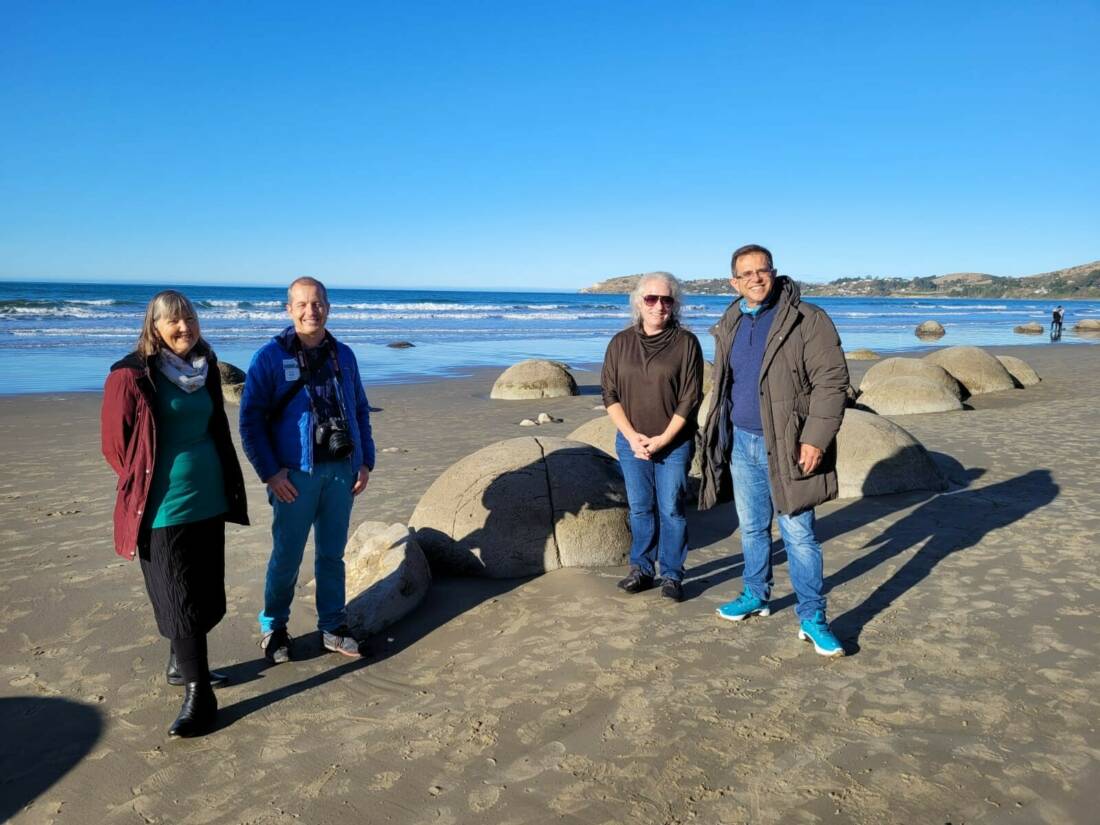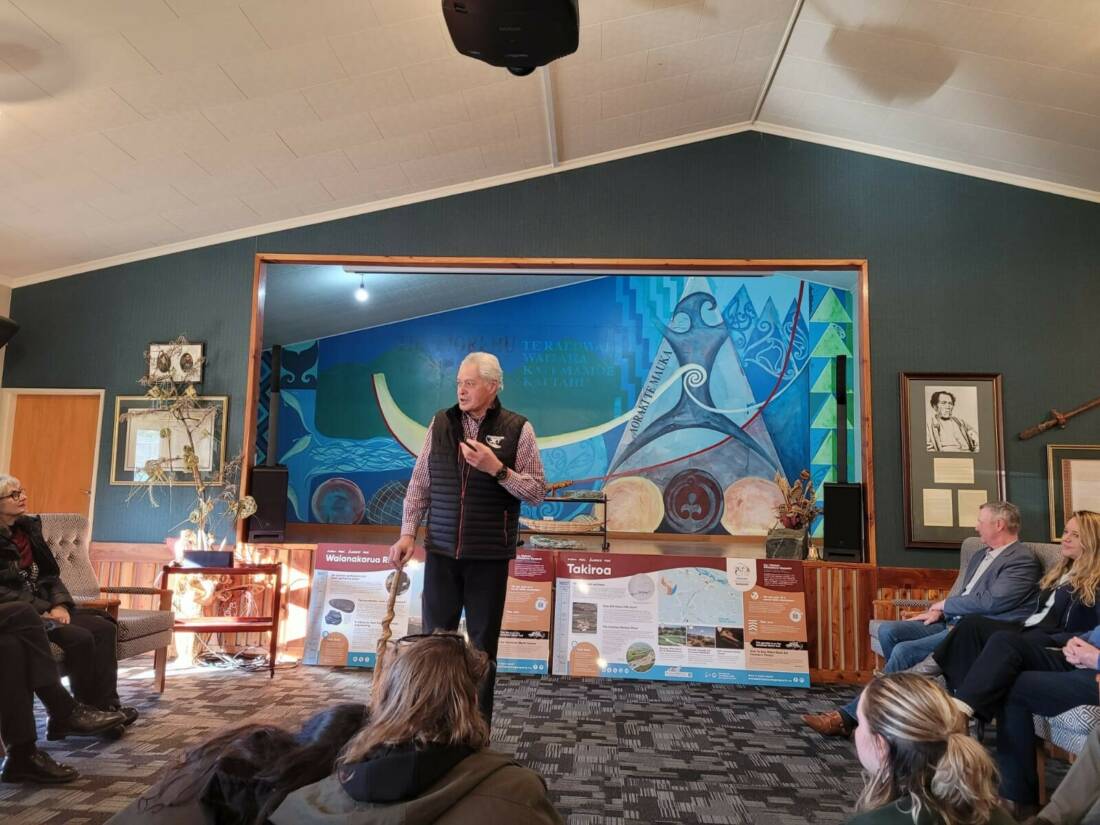UNESCO Evaluators visit Waitaki Whitestone Geopark.
New Zealand National Commission representatives joined UNESCO assessors this weekend as Waitaki Whitestone Geopark’s bid to become the first UNESCO Global Geopark in New Zealand was considered.
UNESCO Global Geoparks
UNESCO Global Geoparks are single, unified geographical areas where sites and landscapes of international geological significance are managed with a holistic concept of protection, education and sustainable development.
There are currently 169 sites across 44 countries, covering a worldwide surface area of 370,662 km² (comparable to the area of Japan).
The Evaluation
Commissioner Prof Carol Mutch, and Secretary General Vicki Soanes joined UNESCO assessors Nickolas Zouros (Greece) and Anchel Belmonte Ribas (Spain) during the weekend visit. Sites visited included the Moeraki Boulders, Puketapu, Devil’s Bridge Wetland, Takiroa Māori Rock Art, Oamaru Lookout Point, Elephant Rocks, Vanished World Centre and an education programme with Duntroon school.
Waitaki first applied for UNESCO Geopark status in 2018, however the covid-19 pandemic has resulted in a delay with UNESCO accessors unable to visit.
"Getting to the point of assessment to become part of the UNESCO Global Geopark Network is no small feat. The Waitaki Whitestone Geopark has been working on this project since 2018 with support from the Waitaki District Council, Tourism Waitaki, iwi, stakeholders, and the wider community; we are all hoping for the best outcome from the UNESCO assessment ", said Margaret Munro, General Manager of Tourism Waitaki.

For Vicki the visit highlighted how important gaining UNESCO status would be to the region.
“Becoming New Zealand’s first UNESCO Global Geopark, is a significant achievement. UNESCO Geoparks are known globally to be huge drawcards, bringing in increased visitor numbers, both domestically and internationally. And importantly these visitors want to experience the natural environment through an educational and sustainable lens. The Waitaki community have worked incredibly hard to get to this point and we were extremely impressed with their energy and commitment to the Geopark,” said Vicki.
UNESCO Global Geopark Benefits
A UNESCO Global Geopark uses its geological heritage, in connection with all other aspects of the area’s natural and cultural heritage, to enhance awareness and understanding of key issues facing society in the context of the dynamic planet we all live on, mitigating the effects of climate change and reducing the impact of natural disasters.
By raising awareness of the importance of the area’s geological heritage in history and society today, UNESCO Global Geoparks give local people a sense of pride in their region and strengthen their identification with the area. The creation of innovative local enterprises, new jobs and high-quality training courses is stimulated as new sources of revenue are generated through sustainable geo-tourism, while the geological resources of the area are protected.

